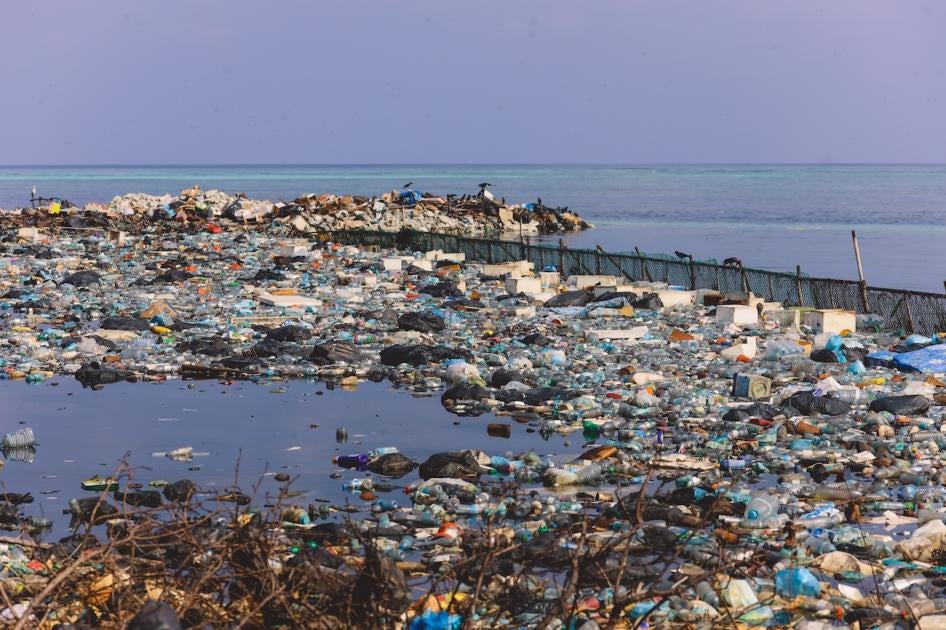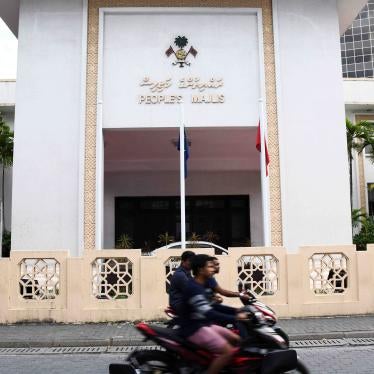On Sunday, Maldives President Ibrahim Solih signed into law the Waste Management Act, raising serious concerns about the rights to health and to a healthy environment, and the government’s obligation to address climate change.
Section 44 of the law opens the door to the importation of waste into the country. Parliament on November 28 had hurriedly amended the bill without any public consultation despite strong opposition from environmental groups, who had pushed for a ban on importation of any form of waste into the country.
Activists had urged President Solih not sign the bill. While the government sought to justify the policy by claiming “waste is seen as useful especially to generate power,” incinerating waste presents a number of risks, primarily from harmful emissions and toxic by-products, including bottom ash.
Maldives has a history of ignoring its own environmental regulations and impact assessments, and does not adequately monitor air emissions to ensure that waste incineration causes minimal damage to the environment or threaten the health of local communities.
Importing waste is also a step back from global standards on plastic waste management. For instance, the European Union is on course to ban plastic waste exports. China, historically the world’s largest importer of plastic waste, banned its import in 2018 due to the environmental impacts. Thailand looks set to phase out waste importation by 2025 in an effort to “protect” the country. Both the Stockholm Convention on Persistent Organic Pollutants, which the Maldives ratified in 2006, and the Minamata Convention on Mercury, raise concerns about incineration.
In January 2023, the Maldives will be taking a seat at the United Nations Human Rights Council, where the government has pledged to prioritize climate-related issues. The minister for foreign affairs said that for low-lying Maldives “the difference between 1.5 and 2 degrees is death.” In addition to the effects on human health, waste incineration releases greenhouse gas emissions that contribute to climate change.
By adopting a law that enables waste importation, Maldives is undermining their international credibility on climate-related issues. Instead of opening the country up to the world’s waste, President Solih should be focusing on zero waste solutions that prioritize its human rights obligations to address health and climate change.










